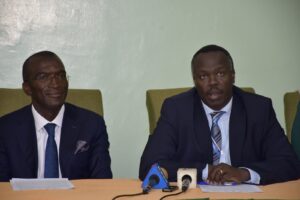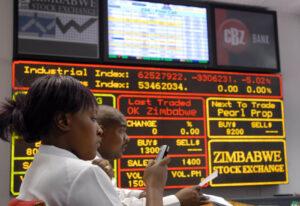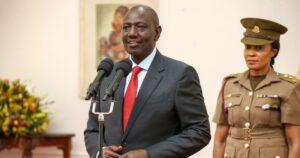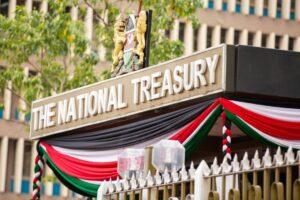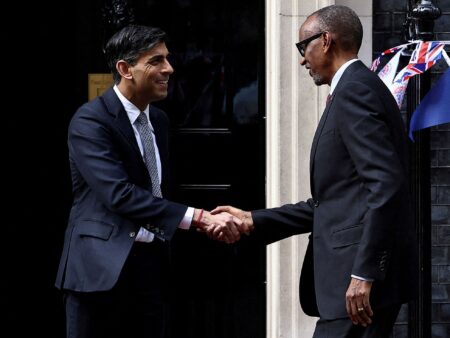- Why the UN is raising the red flag on the UK-Rwanda asylum treaty
- Portugal’s Galp Energia projects 10 billion barrels in Namibia’s new oil find
- Wärtsilä Energy offers tips on how Africa can navigate energy transition and grid reliability
- Powering Africa: Africa’s Path to Universal Electricity Access
- Global investment trends at AIM Congress 2024: a spotlight on the keynote speakers
- South Africa’s deepening investment ties in South Sudan oil industry
- Agribusiness could drive Africa’s economic prosperity
- Dawood Al Shezawi: Why AIM Congress 2024 is the epicenter of global economic and cultural dialogues
Regional Markets
- East Africa’s economic growth is projected to grow at 5.3 and 5.8 per cent in 2024 and 2025-26, respectively.
- The World Bank projects African economies to grow by 3.4 per cent in 2024.
- However, faster and more equitable growth is needed to reduce poverty.
East Africa’s economic growth to lead the continent
Economies in East Africa are expected to spearhead growth in Sub-Saharan Africa this year amid increased private consumption and declining inflation, which are supporting an economic rebound in the region.
The World Bank’s latest Africa’s Pulse report indicates the East African Community is projected to grow at the fastest pace at 5.3 and 5.8 per cent in 2024 and 2025–2026, respectively, thanks to robust growth in the Democratic Republic of Congo, Kenya, Rwanda, and Uganda.
This is higher than the compounded growth for Sub-Sahara Africa, which, albeit rebounding from a low of 2.6 per cent in 2023, is …
- Kenya is keen on extending its pipeline to Malaba (Kenya-Uganda border), with Uganda expected to construct a link line to Kampala.
- According to the Shippers Council of Eastern Africa (SCEA), Mombasa used to command up to 70% of transit business, but this has decreased to 60 per cent.
- Uganda imports an average of 2.5 billion litres of petroleum annually, valued at about $2 billion, with KPC handling at least 90 per cent of the volumes.
Kenya is courting Uganda in a fresh bid to retain and possibly increase petroleum exports amid increased competition from neighbouring Tanzania. In recent months, East Africa’s economic powerhouse has come under pressure from Tanzania, which is eyeing to tap more transit markets for imports and exports into the hinterland through the Dar es Salaam Port.
In the latest developments, Tanzania has offered to license Uganda National Oil Company (UNOC) to import petroleum products through Dar …
- Kenya’s equity market has received an upgrade on its classification by the FTSE Russel Index from “Restricted’ to “Pass” on the repatriation of capital and income.
- This development partly indicates that Kenya is now a maturing market, characterised by increased transparency, liquidity, and a growing investor confidence.
- Across Africa, data shows that an estimated $700 million was reported held in 11 African countries, with Nigeria accounting for the lion’s share.
FTSE Russell, a global provider of analytics, benchmarks and data services, has endorsed the Nairobi Securities Exchange Plc (NSE), ushering a new era in Kenya’s financial services industry. The NSE has announced that as of March 2024, the Nairobi bourse has been reclassified by the FTSE Russell Governance Board, moving from a “restricted” to a “pass” status.
This pivotal change is not just a mark of progress, but a move to underscore the resilience and strategic navigation of the Kenyan …
The demand for carbon offsets is rapidly growing in Africa, unlocking billions for the climate finance needs of economies. Kenya recently hosted a carbon credits auction. The auction is the world’s largest sale, where firms from Saudi Arabia bought more than 2.2 million tonnes of certified carbon credits.…
The Zimbabwe Stock Exchange (ZSE) on June 7 announced a halt in trading for two consecutive days. This comes amid investors flocking to the stock market as an escape from the rapid depreciation of the Zimbabwean dollar. The ZSE All Share index surpassed the 10 per cent threshold on the upside. Consequently, the ZSE exchange had to take immediate action.…
- With tightening monetary policies globally, many African economies are struggling with falling forex reserves.
- Low reserves have sent governments back to the drawing board strategising on how to survive future trends while balancing trade.
- With this, leaders and policymakers in Africa are engaging in the de-dollarisation conversation.
Kenya has sent a strong message to economies in Africa on the need to accelerate dedollarisation of cross-border trade, further amplifying the global conversation on reducing reliance on the US dollar as the main mode of payment.
For over a decade, China and Russia have sought to drastically lower their usage of the US Dollar in what is commonly referred as “dedollarisation”.
This is in a move intended at shielding their economies from possible trade-limiting US sanctions. The strategy also reduces their exposure to adverse effects of US economic and monetary policy, while also asserting global economic leadership.
China, Russia slowly cutting dollar
…- Weaker currencies make the fight to tackle inflation harder given Africa’s dependence on imports.
- According to the IMF, the average depreciation for the region since January 2022 is about eight percent, but events vary by country.
- Ghana’s cedi and Sierra Leone’s leone depreciated by over 45 percent. An analysis by The Exchange Africa shows the Kenya shilling has shed about 18.4 per cent since May last year.
Most African currencies have weakened against the US dollar, fanning inflationary pressures across the continent as import prices surge, IMF now says. This, together with a growth slowdown, leaves policymakers with difficult choices as they balance keeping inflation in check with a fragile recovery.
According to the IMF, the average depreciation across Africa since January 2022 is about eight percent though events vary by country. Ghana’s cedi and Sierra Leone’s leone depreciated by more than 45 per cent.
An analysis by The Exchange …
- Kenya’s forex reserves dipped to $6.2 billion on May 19, an eight-year low, before a slight improvement to $6.4 billion on May 26.
- At $6.4 billion, Kenya’s reserves are just 3.60 months of import cover, which is below the Central Bank of Kenya’s desired target.
- What’s more, the reserves are below the East Africa Community preferred threshold of 4.5 months of import cover, hence exposing the country to high volatilities in the global market.
A dip in export earnings, coupled with reducing diaspora inflows at a time of huge debt repayments have left Kenya grappling with low forex reserves, raising concerns on the health of East Africa’s economic powerhouse.
The low forex reserves are further compounding the dollar shortage problem that has been gripping importers for months. Importers, mainly in the manufacturing and the energy sectors, have been struggling to secure the greenback to replenish their suppliers.
Kenya’s forex reserves
…- Kenya’s Nairobi Securities Exchange posted drop in capitalization in April due to investor flight.
- Other poorly performing bourses were Uganda, Mauritius, Namibia, Morocco, Tanzania, Rwanda and Tunisia.
- Zambia, South Africa, Ghana and Egypt remained positive railing Zimbabwe and Malawi.
Zimbabwe has maintained the lead in the African equity markets returns by recording the highest gains at 112.33 percent year-to-date, the latest data shows. In the period under review, Malawi recorded the highest month-on-month value of 10.96 percent.
At the same time Kenya posted the highest drops both on year-to-date and month-on-month, Nairobi Securities Exchange (NSE) monthly barometer indicates, which stood at negative 15.56 percent and minus 3.52 percent, respectively.
Other poor performers across Africa were Uganda, Mauritius, Namibia, Morocco, Tanzania, Rwanda and Tunisia. In West Africa, Nigeria performed poorly on the month-on-month index but remained positive year-to-date. Zambia, South Africa, Ghana and Egypt remained positive railing Zimbabwe and Malawi.
Kenya’s …










